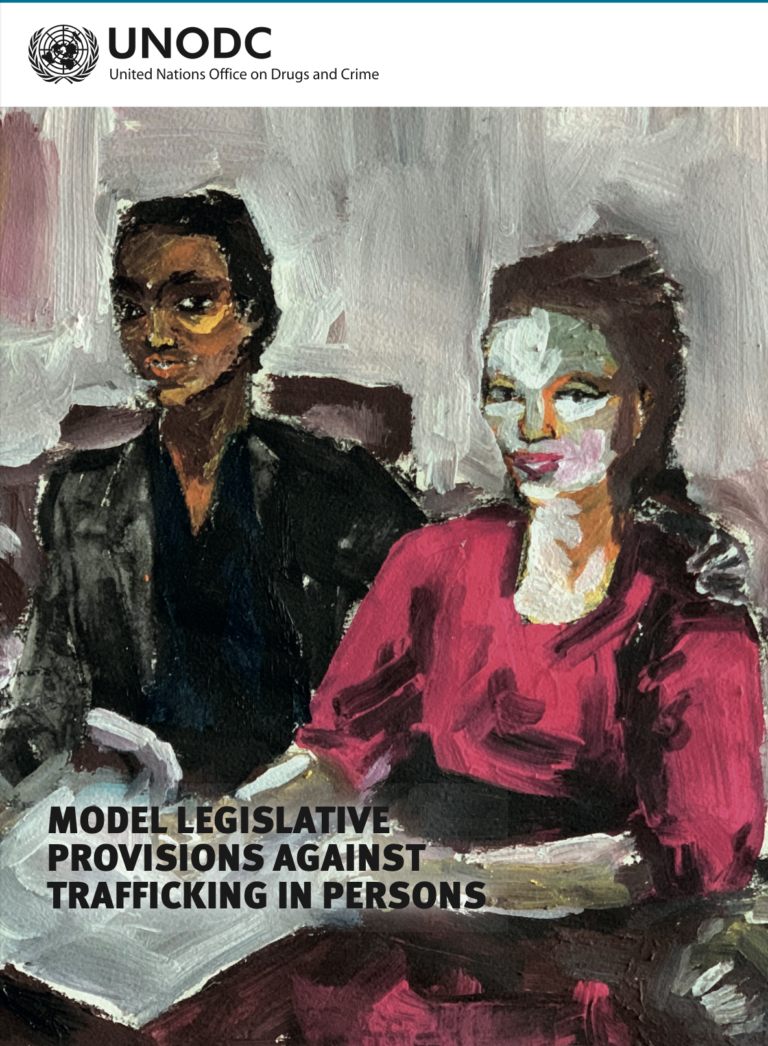In 2009, the United Nations Office on Drugs and Crime (UNODC) published the Model Law against Trafficking in Persons in response to the request of the General Assembly to promote and support the ratification of the Protocol to Prevent, Suppress and Punish Trafficking in Persons, especially Women and Children (“Trafficking in Persons Protocol”) by Member States. At the end of 2009, there were 135 States Parties to the Protocol; at the end of 2020, there were 178 States Parties to the Protocol. Despite the fact that the Trafficking in Persons Protocol is approaching universal ratification, there remains an ongoing need for implementation, and guidance to support such efforts. This revised document, the Model Legislative Provisions against Trafficking in Persons, is one way that UNODC supports Member States to better understand and apply the Trafficking in Persons Protocol.
Trafficking in persons remains a crime of significant concern, driven by underlying socio-economic and security factors, affecting the majority of countries worldwide. Trafficking in persons is endemic, impacting millions of people and generating billions of dollars in illicit revenue on an annual basis. Simultaneously, the realities of trafficking in persons continue to evolve as do the practices employed by traffickers. Accordingly, legislators from around the world must remain vigilant and constantly assess the efficacy of their anti-trafficking efforts.

